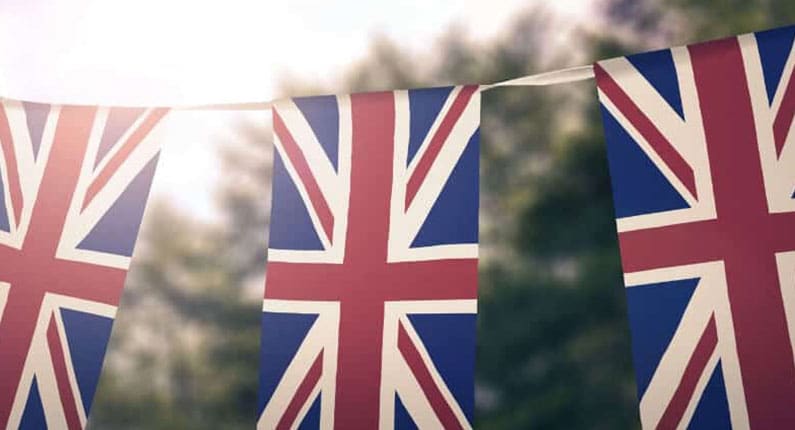
From Guy Fawkes Night and Maypole dancing to bog snorkelling and cheese rolling, there are some downright quirky British traditions that have stood the test of time.
Traditions play a key part in preserving a country’s culture and educating its people, especially the younger generation, about the history, values and beliefs that have existed for centuries. British people are not only known for their good manners and politeness but also for the importance they place on British traditions.
Many of these quirky practices and pastimes have their roots in ancient customs, sometimes dating as far back as the Middle Ages. What they have in common is the sense of community they foster among both participants and onlookers. So, whether you are a Briton wanting to gain a deeper understanding about some of our most bizarre customs or a visitor looking on in baffled amusement, read on to learn more about ten wonderfully eccentric British traditions.
Celebrated on the 5th of November, this annual ceremony is filled with bonfires and fireworks to commemorate the foiling of an attempt to blow up the Houses of Parliament in 1605. The attack was planned by a group of Catholic conspirators, including explosives expert Guy Fawkes, who wanted to remove the Protestant king.
The day was initially known as Gunpowder Treason Day but was later renamed Guy Fawkes Day. Straw dummies representing Fawkes are carried through the streets by children who ask passers-by for “a penny for the guy”. The ‘Guys’ are then thrown onto the bonfire, while fireworks fill the sky to symbolise the 36 barrels of gunpowder that the plotters planned to set off.
This is a form of folk dance performed around a tall pole adorned with garlands, flowers and colourful ribbons that the dancers weave into interesting patterns. The tradition is believed to have started in Roman Britain when soldiers danced around decorated trees to celebrate the arrival of spring.
Taking place on May 1, also known as May Day, the dance would traditionally follow the crowing of a May Queen. The lucky girl was chosen by the villagers and wore flowers in her hair to symbolise the new season.
The Straw Bear Festival takes place over three days in January in the Cambridgeshire town of Whittlesey. The exact origins of this old English tradition are unknown but a straw bear parade has been held in the town since the 19th century to mark the day after Plough Monday. A ploughman would don a bear costume made from straw and entertain the townfolk in exchange for money, beer and food.
These days, the festival starts with a concert on the Friday night, followed by a procession on the Saturday and, finally, the burning of the Bear on the Sunday (hopefully without the man inside!).
This is an old English folk custom stemming from the 16th and 17th centuries when people would cover themselves in foliage to celebrate the coming of summer. Today, the Jack in the Green Festival is held in Hastings over the May Day Bank Holiday weekend and involves a 9ft tall figure dressed in flowers and green being paraded down the streets.
Attendants, who are also covered in vegetation and green rags, guide Jack through the streets as they play music, dance and sing. The procession ends with the slaying of the Jack to unleash the Spirit of Summer.
This tradition started as early as the 5th century and involved parishioners walking the boundaries of the parish and beating each boundary mark with a stick. They would also pray for protection and blessings for their land and crops.
The custom is still observed in some English and Welsh parishes where it seen is a way of strengthening community ties. Residents near the Tower of London hold a ceremony every three years where they walk the boundary of the area known as ‘Tower Liberties’ and finish by singing the National Anthem on Tower Green.
Originating in Wales, Bog Snorkelling has to be one of the strangest of our British traditions. Every August Bank Holiday Sunday, the World Bog Snorkelling Championships are held in Llanwrtyd Wellswhere where visitors and locals are invited to swim two lengths of a 55 metre-long trench .
Competitors wear snorkels and flippers and have to complete the course without using conventional swimming strokes, relying on flipper power alone. If you want to take part make sure to pack a wet suit as the bogs are notoriously murky and cold!
This is another British tradition that will have foreign visitors shaking their heads in wonder. The Cheese Rolling ceremony takes place once a year at Coopers’ Hill in Gloucestershire, England. Dubbed ‘England’s strangest sport’, it involves people hurling themselves down a steep hill to chase after a 9-lb. round of Double Gloucester cheese.
The first person to cross the finish line is crowned the winner, with the cheese awarded as their prize. The exact origin of this centuries-old tradition is not known but it now attracts competitors and spectators from across the world.
Cornish hurling is an outdoor team sport played only in the county of Cornwall. The game is an essential part of annual St Ives Feast, held in February to commemorate the consecration of the parish church of St Eia.
It involves the Mayor of St Ives throwing a silver ball into the air, which two teams then compete for in a huge rugby scrum on the beach below the church. Whoever ends up with the silver ball at 12noon receives a five shilling piece from the mayor.
Burns Night takes place each year on January 25 to celebrate the life and works of the poet Robert Burns, who famously penned Auld Lang Syne. In Scotland it is traditional to hold a Burns Night Supper where haggis is served and some of Burns’ poems and songs are recited. At the end of the meal the host and all the guests stand to sing Auld Land Syne, usually fortified by a few drams of whisky!
Each June, thousands of people gather at Stonehenge for the summer solstice to watch the sun rise on the longest day of the year. The historic site is usually closed to the public but is opened by English Heritage to mark the tradition, which dates back over 5,000 years. No invitation is needed and if you want to take part simply bring a picnic and settle down to enjoy the festival atmosphere with live music and entertainment.
Share This Page, Choose Your Platform
New Release
Crushing Etiquette
"Excellent book, extremely well written and top content, very informative and relevant to all in all walks of life and business and professionals globally that want to advance in their careers and businesses at any stage and increase their professional impact and potential."
R G Goodier
New Release
Around the World
with Etiquette
This expert-written handbook distills essential country-by-country etiquette – from table manners and business protocols to wedding customs – so travellers, expats, and global professionals can avoid faux pas and make a polished impression abroad.
The British School of Excellence is the #1 industry leading organisation in etiquette, manners, life skills and service training.
The British School of Excellence is a certified Disability Confident Employer.
We believe that we are the best at what we do, but don’t just take our word for it – see the reviews of our courses at the independent review site Coursecheck.
Become a part of the BSE community to keep up to date with our courses, articles and news. Become a better, more confident and professional you!



Strewn with real-life stories, fun facts, playful wordsmithing and engaging rhetoric, this handbook will take you from the dining table to the boardroom table and even beyond borders.